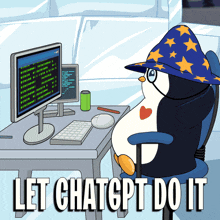B4: Writing in the Age of AI: Empowering Students, Not Replacing Them
GENAI BLOGS


Teaching writing in the 21st century means finding a sweet spot where technology supports learners without replacing critical thinking and creativity. As a writing instructor, I see AI as a helpful tool, but the heart of writing should remain human. My goal is to empower students to engage deeply with their ideas while developing the digital literacy they need to navigate today’s world.
At my institution, which values writing as a cognitive process, a blended approach works best. Processes such as brainstorming, drafting, and revising are essential for building strong writing skills. Meanwhile, AI can offer real-time feedback and assist with mechanical tasks, but only when used thoughtfully and ethically.
I believe that creation belongs to humans.
From the first idea to a rough draft, the process should stay firmly in the writer’s hands. AI can help organize thoughts, check grammar, or rephrase sentences, but the original voice must always come from the student. This ensures that technology supports the writing process without replacing intellectual and creative labor.
Of course, AI isn’t without its risks. It can encourage dependency and dilute
authenticity if overused. To tackle this, I incorporate active learning
strategies. For example, students might use AI for brainstorming but then
analyze and refine their drafts through peer review and reflection.
This approach encourages both technical proficiency and the cognitive
habits needed for strong writing. Modern language learners already juggle
enough, managing cognitive overload, adapting to new writing conventions,
and staying motivated. By blending AI assistance with reflective tasks,
collaborative writing, and clear discussions on AI’s limits, I aim to create a
learning environment where technology enhances, not hinders, intellectual growth.
The future of L2 writing instruction? A hybrid model where human creativity meets AI efficiency. As both an educator and researcher, I’m committed to evolving with these technologies, ensuring that writing instruction always centers on critical inquiry, creativity, and authentic expression in a digital world. Do you think AI in education provides a crutch that can hinder learners' genuine development? If so, how can that be navigated?


